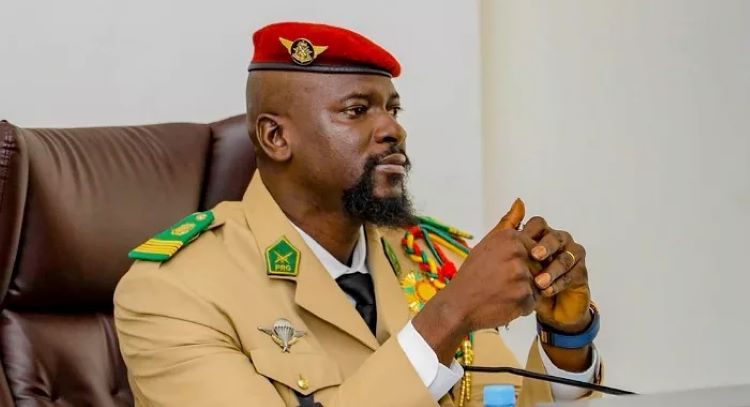Gambiaj.com – (Conakry, Guinea) – The transitional president of Guinea has issued a decree calling the country’s electorate to vote in a constitutional referendum, marking a significant new phase in the ongoing political transition. The vote, set to be conducted by secret ballot, will take place from 7 a.m. to 6 p.m. on an undisclosed date, in accordance with Law L/2025/012/CNT of April 25, 2025, which governs the organization of referendums in Guinea.
The decree, signed on the evening of August 4, also directs key ministries—including Territorial Administration and Decentralization, Defense, Security, Justice, Budget, Economy and Finance, and Foreign Affairs—to ensure the implementation of the directive within their respective domains.
The draft constitution reaffirms several progressive provisions from the 2020 Constitution. These include the prohibition of the death penalty and female genital mutilation, alongside the protection of fundamental rights, such as the obligation for authorities to inform any arrested individual of the reasons for their detention.
A key element of the draft is the regulation of presidential terms. Article 44 stipulates that the President of the Republic shall serve a five-year term, renewable only once. Additionally, the draft constitution includes a stringent limit, stating that no individual may serve more than two terms as president in their lifetime.
However, uncertainty looms over the potential candidacy of the current transitional leader, General Mamadi Doumbouya, who has been in power since the ousting of former president Alpha Condé three years ago.
However, the announcement has drawn mixed reactions from Guinea’s political class, with sharp criticism from the former ruling party, the Rally of the Guinean People (RPG). Mohamed Lamine Kamissoko, a senior member of the RPG’s national political bureau, rejected the decree outright, arguing that the transition period has already exceeded its original 24-month timeframe.
“For the RPG, the transition is over,” Kamissoko declared, citing previous commitments made publicly by the head of the transition. “He said in front of the entire Guinean people that he would not be a candidate. He said the transition would not go beyond 24 months. He swore to that.”
Kamissoko emphasized that any further action by the transitional authorities is solely the responsibility of the National Committee for Rally and Development (CNRD) and not the nation at large. “If he now exceeds the limits of his engagement, that does not concern us,” he insisted, adding that the RPG will take a collective position after party consultations.
Regarding the broader electoral process—including the call to the electorate and publication of voter lists—Kamissoko remained firm: “It’s the same agenda, all part of one package. All of this concerns only the CNRD.”
The RPG’s stance underscores the growing political tensions surrounding Guinea’s uncertain transitional path. While the party has not yet announced its official position, it clearly views the current referendum process as a departure from the original promises made to the Guinean people.
Meanwhile, Guinea’s main opposition leader, Cellou Dalein Diallo of the Union of Democratic Forces of Guinea (UFDG), remains silent from exile. Diallo has been out of the country for over two years following a fallout with the CNRD.
However, his return appears imminent. According to UFDG communication chief Souleymane Souza Konaté, Diallo will return to Guinea “in broad daylight, not to chatter with anyone, but to take his rightful place.”
As the referendum approaches, all eyes remain on how opposition forces—both at home and abroad—will position themselves in what could be a decisive moment in Guinea’s political future.










